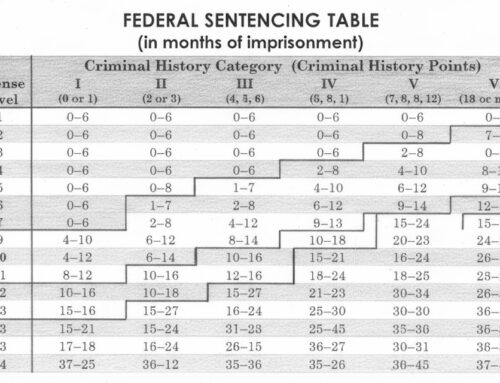Florida’s Mandatory Minimum Sentencing
Understanding Florida’s criminal justice system, with its mandatory sentencing Florida law, can be overwhelming, particularly when dealing with the multifaceted aspect of mandatory minimum sentencing. These are obligatory punishments that judges, per a Florida statute, must give defendants for specific crimes, limiting their discretion to adjust sentences based on each case’s nuances or the defendant’s unique profile. This detailed guide aims to simplify the understanding of Florida’s mandatory minimum sentence structure for the average individual.
Understanding Mandatory Minimum Sentencing in Florida
Mandatory minimum sentencing within Florida’s legal system refers to fixed penalties defined by Florida law for a spectrum of crimes. These sentences denote the absolute minimum punishment a person will face if convicted of a specific crime under the United States jurisdiction, including the Sunshine State, Florida.
When dealing with a mandatory sentence, the presiding judge has no discretion to mitigate the sentence, irrespective of the case specifics or the defendant’s history and character. This implies that even if a judge feels that a less severe sentence is appropriate given the defendant’s background or the crime’s details, the judge is bound by Florida law to impose the mandatory minimum sentence.
Crimes Subject to Mandatory Minimum Sentencing in Florida
Various crimes in Florida, including trafficking and drug crimes, carry mandatory minimum sentencing.
Drug offenses: Florida takes a hard stance on drug crimes, particularly drug trafficking. Drug trafficking offenses come with mandatory minimum sentences, the length of which hinges on the drug type and quantity involved. A controlled substance trafficking crime involving specific amounts of cocaine, heroin, or methamphetamine attracts a mandatory minimum prison sentence.
Firearm offenses: Florida’s 10-20-Life law is an example of mandatory minimum sentencing. This law implies that certain gun crimes carry mandatory minimum sentences. For instance, possession of a firearm during the commission of specific felonies carries a 10-year mandatory minimum sentence. If the firearm is discharged during the crime, the mandatory minimum sentence escalates to 20 years. If someone is injured or killed, the mandatory sentence extends from 25 years to life imprisonment.
Sexual offenses: Sexual crimes, particularly those involving minors, attract mandatory minimum sentences. Depending on the offense’s severity and the victim’s age, these can range from a few years to life in state prison.
Other Mandatory Sentences in Florida
In addition to the above, Florida law includes other categories of mandatory sentencing. The Prison Releasee Reoffender (PRR) law imposes mandatory sentences on individuals who commit certain crimes within three years of their release from prison. Defendants who qualify as habitual violent offenders can also be subject to mandatory sentences under certain circumstances. In addition, defendants who qualify as violent career criminals can also face harsh minimum mandatory sentences.
The Debate Surrounding Mandatory Minimum Sentencing in Florida
The mandatory minimum sentencing law in Florida has long sparked controversy within the legal and general community. Advocates argue that they ensure consistency in sentencing, fostering fairness and discouraging potential criminals. Critics counterargue that these sentences can result in unjust outcomes, particularly when the defendant has no prior record or the crime circumstances are less severe.
Getting Legal Help in South Florida
If you or a loved one are in Miami, Fort Lauderdale, or anywhere in South Florida facing charges that carry a mandatory minimum sentence, engaging a lawyer can help you understand your charges, potential penalties, and the best defense strategies. It’s crucial to seek legal advice immediately.
Disclaimer: This article is intended for informational purposes only and does not constitute legal advice. Always consult with a qualified legal professional for advice regarding your specific situation.
CALL US for a FREE CONFIDENTIAL CONSULTATION at (305) 538-4545, or take a moment to fill out our secure intake form. The additional information you provide will greatly assist us in responding to your inquiry.
*Due to the large number of people who contact our law office requesting our assistance, it is strongly suggested that you take the time to provide us with specific details regarding your case by filling out our confidential and secure intake form. The additional details you provide will greatly assist us in responding to your inquiry promptly and appropriately.
ALWAYS INVESTIGATE A CRIMINAL DEFENSE ATTORNEY’S QUALIFICATIONS AND EXPERIENCE BEFORE MAKING A DECISION ON HIRING A LAWYER FOR YOUR CRIMINAL CASE IN MIAMI-DADE COUNTY








